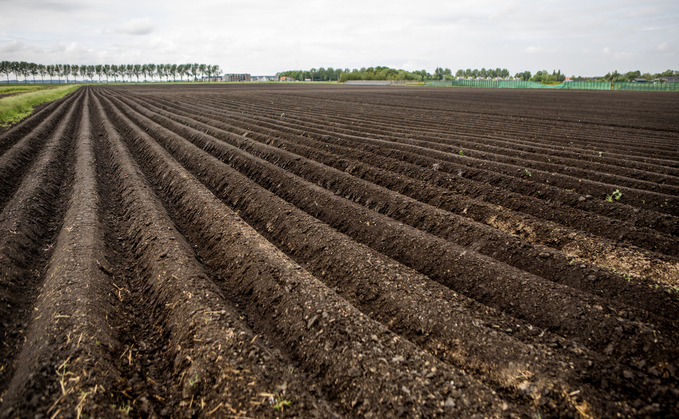
Partner Insight: ADM explains how it is working with partners such as Map of Ag, Klim and Bayer and Biosphèresto to drive the adoption of regenerative agriculture at scale
In a bid to improve soil health, strengthen global food security and enhance the resilience of their farming operations, farmers across the world are continuing to employ regenerative agriculture practices.
At ADM, regenerative agriculture is defined as an outcome-based farming approach that protects and improves soil health, biodiversity, climate and water resources while supporting market opportunities and increased value for farmers. Regenerative agriculture is adaptive to local physical conditions and culture, and is based on five principles of land management: minimising soil disturbance; maintaining living roots in soil; continuously covering bare soil; maximising biodiversity with an emphasis on crops, soil microbes, and pollinators; and responsibly managing inputs, including nutrients and pesticides.
Soil health is critical to global food security and the continued success of farmers and agriculture – it supports feeding the world, and it protects biodiversity. Regenerative agriculture focuses on rebuilding and maintaining soil health, alongside working to lower carbon footprints, and it also helps serve the demand from consumers for sustainably farmed products, with 83 per cent of food and drink shoppers in the UK intentionally choosing products with a sustainability claim for at least some of the products they buy.
Measuring and verifying impact is vital for scaling regenerative practices, and accurate measurement is a central tenet of ADM's global regenerative agriculture efforts. The company buys, transports, and transforms agricultural commodities into a multitude of food, feed, fuel, and consumer and industrial products and works with data and technical partners all around the world to help measure, monitor, and verify practices and outcomes on the thousands of farms enrolled in its regenerative agriculture programme.
"Data and measurement are critical for building trust and confidence among our customers," explains ADM's UK country manager, Jonathan Lane. "We need to reinforce our work and progress with data, helping us be specific on goals and targeted on outcomes so everyone along the value chain understands how the practices translate into impact and ultimately value creation."
It is clear this is a challenge that cannot be tackled alone. Supporting the healthy soil, water and air that our food system depends on requires uniting farmers, data and tech platforms, customers and consumers. By touching every point of the value chain, ADM is uniquely positioned to bring these partners together to scale up regenerative agriculture in the UK and beyond.
ADM's re:generations™ programme offers financial incentives and agronomic support for farmers adopting regenerative practices. In 2023 the company supported farmers adopting regenerative agriculture practices across more than 2.8 million acres.
In accelerating its regenerative agriculture efforts, ADM is taking a collaborative approach, forging partnerships with technical providers such as Map of Ag in the UK, Klim in Germany, and Bayer and Biosphères in Poland, so that accurate data and measurement is deployed on every farm.
Technical partners support the measurement of soil health, carbon sequestration, greenhouse gas emissions, and other indicators to allow farmers and ADM and customers to gain valuable insight into current outcomes as well as future opportunities. In a recent feasibility study in Poland, for example, the data collection showed that carbon emissions from those acres implementing at least one regenerative agricultural practice were 15 per cent lower than those of conventional farms.
This year, ADM's re:generations™ programme expanded into Germany, aiming to enrol 60,000 acres by the end of the year, following successful launches in the UK and Poland. With the support of AgriTech company Klim, which provides monitoring and data-driven insights, as well as expert training, the programme offers farmers key tools to measure and improve their operations now and for years to come.
"We're excited to support farmers across Europe in strengthening their businesses and enhancing their resilience," said Candy Siekmann, director of Climate Smart Agriculture Origination at ADM. "Through expert training, continuous feedback, and an approach promoting practice changes and rewarding outcomes across the entire farm, the re:generations™ programme is fostering regenerative practices that benefit both farmers and the planet."
Robert Gerlach, CEO and founder of Klim explains: "By combining ADM's resources and farming network with Klim's data and analytics driven approach and regenerative expertise, we are spearheading an industry-wide shift towards a more resilient, sustainable food system. This partnership is a powerful model for how collaboration across the entire value chain can deliver both environmental impact and economic resilience at scale."
Farmer Lorenz Rindler from Sundhagen, Germany, who recently enrolled his farm, expressed confidence in the positive impact of regenerative practices, adding: "What excites us most is the collaboration across the supply chain to achieve a common goal." The programme's focus on robust data collection and verified outcomes ensures that farmers can make informed decisions about their business and help contribute to a more sustainable, and resilient food system.
In the UK, ADM is building on its existing partnership with Map of Ag, who run an industry leading data platform that connects farm and agrifood sector data using a highly trusted permissions and data management engine. This puts farm users in control of their data.
"Our role in this partnership is to ensure the data is robust and actionable," explains Caroline Hope, sustainability lead at Map of Ag. "That way, farmers can realise measurable benefits from regenerative practices while giving ADM's customers confidence in the impact of on-the-ground results."
As organisations like ADM lead the charge, working together will be vital to advancing the measurement of economic, environmental and social impacts, and driving the adoption of regenerative agriculture at scale. With its commitment to improving soil health and creating a resilient supply chain through strong partnerships, ADM continues to pursue meaningful change that will deliver for generations to come.







